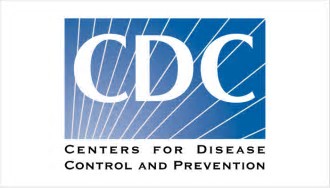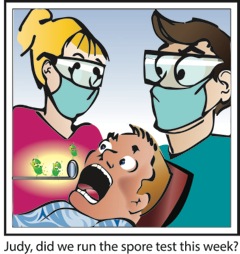Effective sterilization is essential to protecting patients and staff in the dental setting. Biological monitoring,…

Recent Measles Outbreaks Help Remind DHCP to Screen Patients for ATDs
 The US Centers for Disease Control and Prevention (CDC), along with the media, has reported on recent outbreaks of measles cases in the United States. On March 29, CNN published a news story reporting that measles cases for March 2024 have already surpassed the entire case count in all of 2023.
The US Centers for Disease Control and Prevention (CDC), along with the media, has reported on recent outbreaks of measles cases in the United States. On March 29, CNN published a news story reporting that measles cases for March 2024 have already surpassed the entire case count in all of 2023.
Measles is a highly contagious airborne virus that can cause serious disease. It can spread to others through coughing and sneezing. If other people breathe contaminated air, or touch a contaminated surface and then touch their eyes, noses, or mouths, they can become infected. Measles is so contagious that if one person has it, up to 90% of the people close to that person who are not immune will also become infected. According to the CDC, about one in five unvaccinated individuals who contract measles will be hospitalized.
In 2000, measles was declared eliminated from the United States due to widespread vaccination. Since measles is still common in many countries, unvaccinated travelers who become infected may bring measles into the United States and can then spread measles to other people who are not protected against measles. This can lead to outbreaks.
For DHCP in California
 With the measles outbreaks, as well as for COVID-19 and any other aerosol transmissible diseases (ATDs), dental healthcare personnel (DHCP) in California must screen patients for ATDs prior to treating them. Cal/OSHA’s Aerosol Transmissible Disease Standard requires healthcare providers to follow certain precautions to prevent exposure to ATDs.
With the measles outbreaks, as well as for COVID-19 and any other aerosol transmissible diseases (ATDs), dental healthcare personnel (DHCP) in California must screen patients for ATDs prior to treating them. Cal/OSHA’s Aerosol Transmissible Disease Standard requires healthcare providers to follow certain precautions to prevent exposure to ATDs.
Because DHCP do not treat patients for symptoms caused by ATDs, DHCP are conditionally-exempt from Cal/OSHA’s requirements, if all of the following conditions are met:
- Dental procedures are not performed on patients identified as ATD cases or suspected ATD cases. The dental practice screens patients for airborne infectious disease using health history forms, and defers dental treatment for any patients with suspected active infection.
- The DHCP follows state dental infection control requirements and CDC recommendations for dental infection control. The dental practice’s Injury and Illness Prevention Program (IIPP) includes a written procedure for screening patients for ATDs that is consistent with CDC dental infection control guidelines, and this procedure is followed before performing any dental procedure on a patient to determine whether the patient may present an ATD exposure risk.
- DHCP have been trained on the ATD screening procedures in accordance with the dental practice’s IIPP.
- Aerosol-generating dental procedures are not performed on patients who have been identified in the screening process as being a possible ATD exposure risk unless a licensed physician determines that the patient does not currently have an ATD.
While only California DHCP must comply with these requirements, these are prudent practices for all DHCP.
For our OSHA Review subscribers… The March/April 2023 issue of OSHA Review in Section I of your OSHA Review binder covers ATD requirements in California.
Since 1992, OSHA Review, Inc. has provided dental professionals with comprehensive programs to support regulatory compliance and infection control. We are a registered continuing education provider in the state of California, specializing in Dental Practice Act, infection control, and OSHA training.

